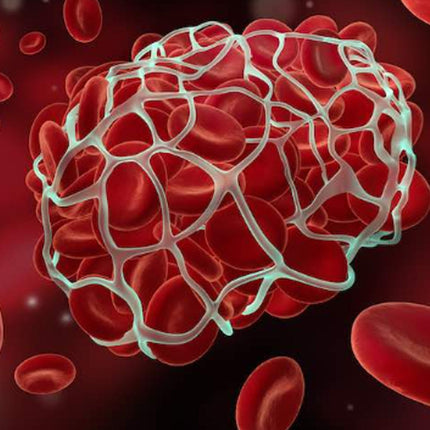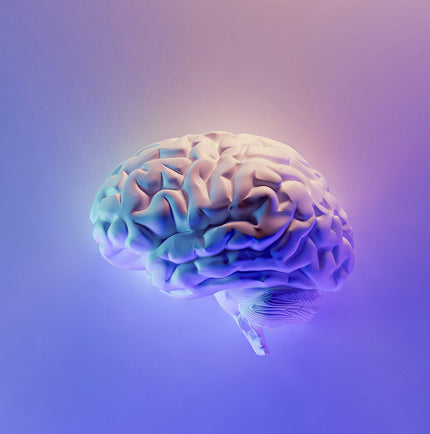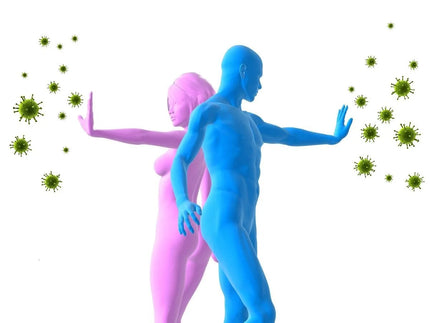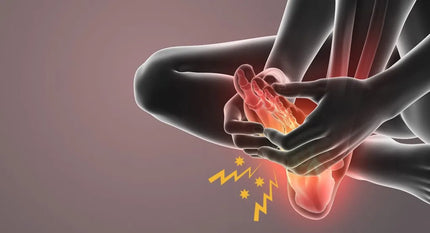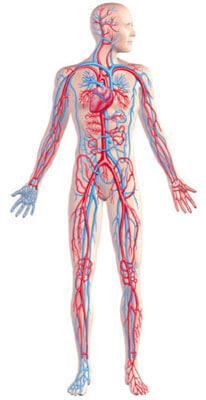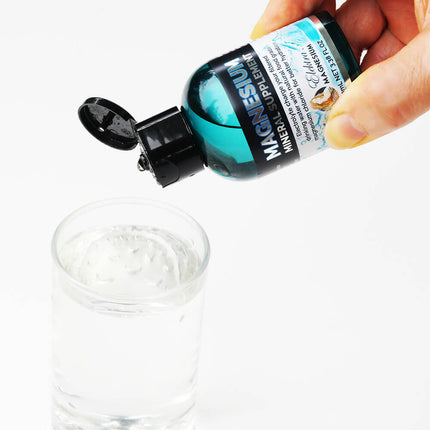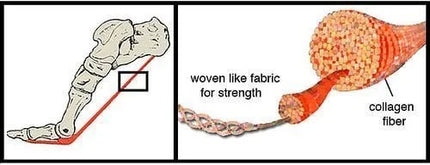Tax included and shipping calculated at checkout
It is now well-known that dogs need all the essential vitamins and minerals that humans do. One of these key nutrients is magnesium because it’s needed for energy production at the cellular level. Magnesium deficiency in dogs can lead to a diverse set of symptoms. Every time your pet moves a muscle, experiences a heartbeat or has a thought, magnesium is needed to help them achieve this.
It’s little wonder many of our pets are deficient in magnesium because they share the same deficiencies as their human masters. Magnesium is very very depleted in foods we eat these days, especially when processed. We live in a fast food world of packets and tins, where you can bet that this type of food provides little or no magnesium benefit. Even fresh produce can be lower in magnesium than it should be simply because the soils have become depleted. When you add to that fact that we humans and our animals lose more magnesium when under stress, you can see why magnesium deficiency is very widespread.
Many vets are aware of the importance of magnesium: Shailen Jasani is a veterinary surgeon specialising in Emergency and Critical Care in the UK. He says that magnesium can be used as a medication with an escalating role in critical care medicine, and, “Magnesium plays a pivotal role in cellular energy production and cell-specific functions in every organ of the body.” Jasanai further explains that this is because, “Magnesium plays a pivotal role in the electrophysiology and ion flux across cell and mitochondrial membranes,” which, he adds, ultimately impacts on energy production and release.
Some symptoms of magnesium deficiency in dogs are:
- Muscle weakness or trembling
- Hyperactive or improperly triggered reflexes
- Difficulty walking
- Muscle pain
- Heart arrhythmia
- Lethargy or abnormal behaviour
- Constant scratching or itching
- Difficulty sleeping

Causes of magnesium deficiency in dogs:
- Excessive stress, trauma or injury
- Chemical and toxic exposures
- Malnutrition
- Diabetes
- Kidney damage
- Treatment with diuretics
- Digestion problems and disease inhibiting absorption of nutrients
More serious symptoms of heart arrhythmia:
If you feel your dog is showing signs of magnesium deficiency, this should be checked out quickly to avoid serious heart problems. Take your dog to the vet and they will listen to your dog’s heart. If any abnormality is detected they’ll probably order an ECG.
An ECG is a medical device which displays the patterns of your dog’s heartbeat on a screen using terminals taped to your dog’s chest. This is a simple machine and most vets have one. The classic signs of low magnesium are prolonged PR intervals, widened QRS complexes, depressed ST segments and peaked T-waves.
Other minerals are also affected by magnesium deficiency in dogs
Sure, there are other electrolyte minerals required by both humans and dogs. We need sodium, potassium and calcium as well, but these are all dependent to some degree on the action of the magnesium. Magnesium underpins and leverages their effect. And our main electrolyte team in addition to magnesium - sodium, potassium and calcium - are necessary for some very important functions, including muscle movement, proper heart function and nervous system signalling.
For example, if you have plenty of magnesium, your body doesn't need quite as much calcium to get the calcium jobs done because magnesium organises and controls calcium's use in the body. It turns out that magnesium is the 'Master Mineral' electrolyte regulator in the electrical system. If it drops too low, calcium can cause a lot of havoc as free calcium depositing where it shouldn't, or over-stimulating muscle cells.
Therefore, as magnesium drops lower, it can lead to the other three minerals losing effect. Studies have shown that potassium suffers when magnesium is too low, as we can lose too much potassium due to membrane 'leakiness' when magnesium is deficient. If you lose too much potassium from inside the cell it can cause heart attacks. The potential knock-on effects are muscle weakness and tremors, as well as heart arrhythmias. As these issues escalate they can become fatal.
I have a customer that regularly applies Magnesium Oil to the legs of his racing dogs so they can recover better from their events. Without the extra magnesium the dogs develop intense and involuntary muscle tremors and spasms. This is also a helpful strategy for all athletes who undertake extreme sports and gruelling training.
If your dog is behaving strangely and seems to be in pain or having trouble walking, take your pet to a vet straight away so they can check exactly what’s happening. Sometimes it might be a toxin from a tick or snake bite that is causing these issues, because that type of toxin blocks the electrical system.
Magnesium deficiency is something that tends to grow over time. You will be able to notice symptoms creeping in slowly, and escalating if left untreated.
If you’re worried about your dog’s health because he/she is behaving strangely with symptoms like sensitivity to stress or noises, anxiety, muscle weakness and changes to gait, or skin issues with constant scratching not due to fleas, then your vet will likely order a blood electrolyte test. This measures the amount of minerals such as magnesium, potassium, calcium and sodium in your pet’s blood, in addition to some other common electrolytes.
Treatment of magnesium deficiency in dogs
However, if you are feeding your dog well with a good variety of fresh food, but suspect magnesium deficiency (perhaps due to stress or exertion), then you can test this by applying magnesium as a magnesium spray, lotion or cream on the underbelly or legs - wherever you can get it past the fur to the skin. You can also add food grade magnesium chloride flakes to their drinking water every day. Watch for changes in the symptoms over a few days of applying magnesium transdermally once or twice a day.
Supplementing your dog with magnesium is easy with Elektra Magnesium Cream for dogs (Pet Cream). The Pet Cream is recommended for skin and itching issues, because it has a higher fat content, which is very soothing for sensitive skin whilst delivering the magnesium. Adding Magnesium Chloride Flakes to your dog’s drinking water ensures the water they drink works better inside the body for good hydration, but it may be too little magnesium by itself to deal with more intense nervous system, muscle, joint or skin issues. For that you need transdermal magnesium. It works fast to alleviate magnesium deficiencies because magnesium chloride flakes are natural food grade salts made by nature that dissolve fully in water and can be taken up by cells (including dermal cells) without further digestion.

Supplementing dietary magnesium using transdermal magnesium is relatively easy. Dogs actually love massage. Believe me, they will be coming back for more! Just massage in one or two teaspoons of Magnesium Cream for Dogs (Pet Cream). If your dog has developed magnesium deficiency, it’s best to keep applying the cream regularly, as well as adding the Magnesium Chloride Flakes to drinking water, to prevent re-occurence of magnesium deficiency symptoms.
It's not really a 'medicine', but rather a vital nutrient that we need daily, and which is low in our food supply.

A big day out in the park means they need a bit more of that magnesium
If you want to see your dog come home after a big day out and to recover well from a lot of exertion, then make sure you use transdermal magnesium for quick relief. Exercise can deplete magnesium reserves a lot.
Lower magnesium levels are associated with hyperactivity, anxiety and agitation. You can tell when it becomes hard for your dog to relax and calm down. When enough magnesium is supplied the symptoms go away and the muscles can relax again. Relaxation is essential for recovery from stress, healing and tissue repair, strong bones and healthy joints. Magnesium also helps your dog drift off in a sound slumber, waking up more refreshed and ready for another round of fun activity! Ample magnesium will also support a shiny coat, a better temperament and enhanced longevity in your dog. They don't call magnesium the 'anti-ageing mineral' for nothing!
In summary, here are our tips for treating magnesium deficiency in dogs:
- Rub Magnesium Cream for Dogs into their skin. To sooth itchy skin use a small amount of this cream on the afflicted area. It may tingle but this is temporary and fades quickly. Avoid application to broken skin as it may sting, but rather apply to surrounding area. Apply regularly every day until the inflammation subsides. Magnesium Charge Lotion will also work this way.
- Or rub some Elektra Magnesium Oil Spritz into your pet's muscles for more acute symptoms. For extra relaxation and recovery after strenuous exercise, use 6-8 sprays (or more if needed).
- Add some Magnesium Chloride Flakes to your pet’s drinking water (dogs, cats, horses etc) to make a mineral alkaline water for better hydration. Use the same amount as for making mineral drinking water for humans. See instructions here.

Elektra Magnesium Cream for pets, lotion and oil are non-toxic and contain no parabens, animal products or petrochemical ingredients. They are made with all natural plant ingredients and natural food grade magnesium chloride salt flakes.
You can check out the full range of Elektra Magnesium products here at their website. Or join their Facebook and Instagram groups for more magnesium health tips.









